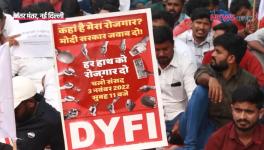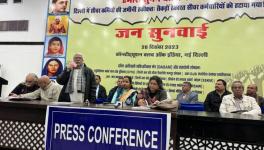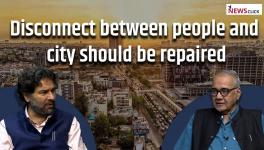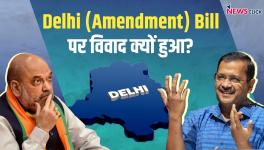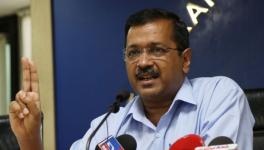Disempowering Delhi’s Urban Poor by Empowering the LG
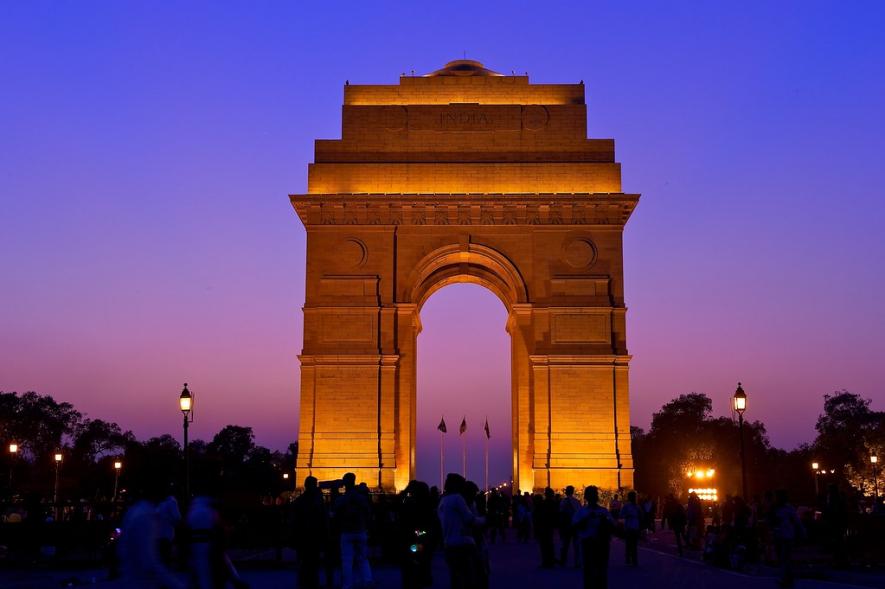
LAST month, the Parliament amended the framework for the functioning of the Legislative Assembly in Delhi which flies in the face of a 2018 Supreme Court judgement. This amendment underlines that the term ‘government’ in any law made by the Legislative Assembly of Delhi will now mean Lieutenant Governor (LG). It de facto increases the concentration of the Union Government’s governing power over Delhi through the LG, at the cost of that of the elected Government of Delhi. Whereas the Supreme Court judgement had interpreted Article 239AA of the Indian Constitution holding that the LG had not been entrusted with any independent decision-making power in the governance structure of Delhi except for land, police and public order.
Among several reasons for the apex court’s decision, some importunate ones were to highlight the special status of Delhi under the Constitutional scheme and to give effect to “collaborative federalism” and “respect” for a representative government. While the legal consequences (both good and bad) of the amendment have been debated in the last few weeks by several scholars, the most cogent practical impact of this would be felt by Delhi’s urban poor: informal workers, domestic helpers, casual labourers and the like.
Taking away their right to the city
Delhi is unique in its “special” status under the Constitution as its administration is different from other Union Territories (by virtue of Article 239AA of the Constitution, which provides for an elected legislature). Its uniqueness also comes from its demographics.
Being the Indian capital and a confluence of economic activity, it has large swarms of informal workers, daily wage labourers, domestic workers and slum dwellers who have come here from across the country to secure livelihoods and a better life for themselves and for their families.
At the same time, Delhi also has citizens with extreme privilege, power and opportunity that thrive on a culture of elitism and exclusion.
In such a scenario, the power to elect a government that represents all its citizens is not only necessary for democratic reasons but is also an aspirational truism for people to dream and aspire through the use of their vote. This political reality has played out in Delhi in the last few years through the immense political support that the currently ruling Aam Aadmi Party has enjoyed by appealing to the aam aadmi, or the common man.
As Henry Lefebvre, the French social scientist who coined the term “right to the city” suggested, stronger democratic control is a means of reshaping a city.
However, the Union Government’s amendment will do just the opposite for the vulnerable in Delhi. It will take away their aspiration, their agency and even a token of symbolism that they might currently have in shaping the city.
Disconnect with needs of the local urban poor
Unlike the middle and higher-income classes in Delhi, the urban poor cannot insulate themselves from the problems of health, food security, and environmental pollution through monetary means and social connections. Their power to influence the government comes through the use of their agency as residents and citizens.
This agency, though, only works in the face of decentralisation so that local contexts can be represented and understood in electoral politics. The scope for such context-based decision-making depends on the extent of decentralisation, not only in theory but in practice.
By taking away from the local government the complete freedom to enact adequate legislation and implement laws without the concurrence of the LG, this amendment will take away any real possibility of the government adequately responding to people’s needs.
It will also undermine the legitimacy and belief in the system of Delhi’s common residents.
Also read: Why Delhi Citizens Will Be the Real ‘Losers’ if NCT Bill Is Passed
Effect on existing welfare schemes
There are several ongoing social security schemes in Delhi ranging from education reforms and mohalla clinics to improved healthcare as well as aiding residents with regularization of unauthorized colonies and food security programs.
Urban governments already face a number of constraints, both institutional and financial, on their ability to respond to the needs of their citizens, particularly the most marginalised.
To a large extent, the political context determines the ability of the government to overcome these constraints. That political conflicts with the Centre can undermine the capacity of municipal governments to respond is well established in the Indian context.
This will be aided by the new amendment. At worst, if some welfare schemes are amended, this runs the risk of loss of several gains made over the last few years. At best, it will cause delays in the execution of these schemes as the Centre and the Delhi government engage in a power tussle. Such delays are a luxury that the poor cannot afford.
Also read: With LG at Helm, Expect Policy Paralysis in Delhi
Perhaps what best exemplifies the current situation may be inferred through the statement of objectives and reasons that all legislations have.
In 1991, when the Sixty Ninth Amendment to the Constitution was passed conferring on Delhi a Legislative Assembly and a Council of Ministers, the statement of objectives had highlighted the need to address “matters of concern to the common man.”
In contrast, the current amendment, through the 2021 bill, seeks as its objective to “promote harmonious relations between the legislature and the executive” by stretching the definition of the Government to mean the LG. There is no mention of the concern for the end beneficiary of the law: the common man.
(Eklavya Vasudev is a lawyer and a Ph.D. Candidate in Law at the Friedrich-Alexander-Universität Erlangen-Nuremberg in Germany. The views expressed are personal.)
Originally Published in The Leaflet
Get the latest reports & analysis with people's perspective on Protests, movements & deep analytical videos, discussions of the current affairs in your Telegram app. Subscribe to NewsClick's Telegram channel & get Real-Time updates on stories, as they get published on our website.










